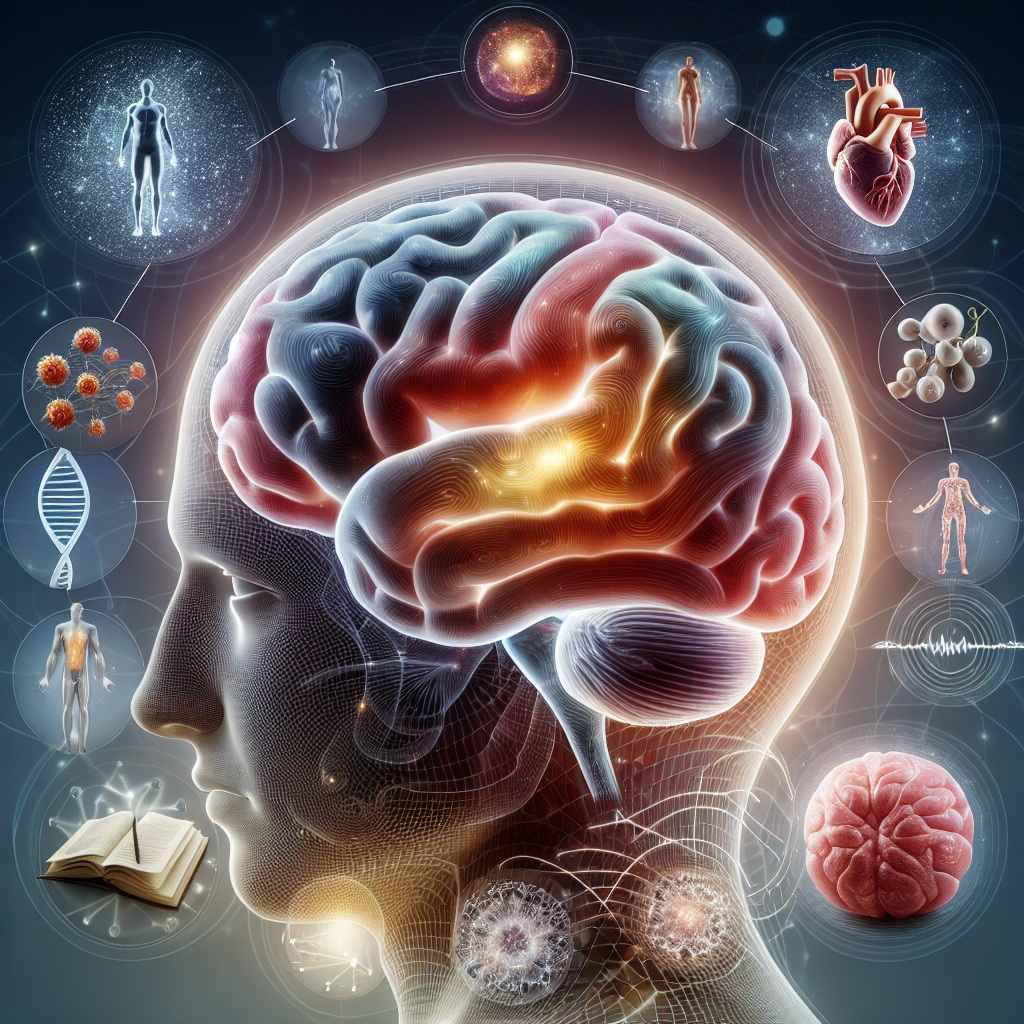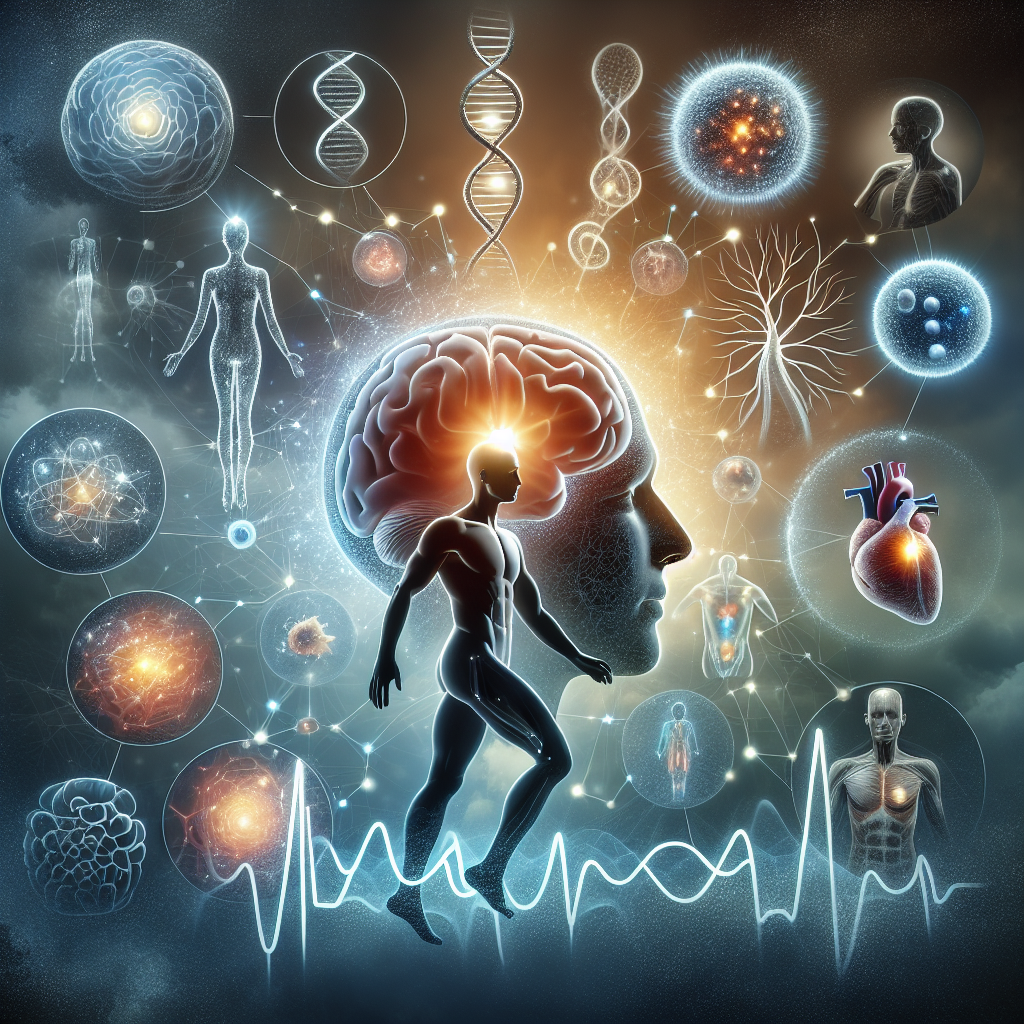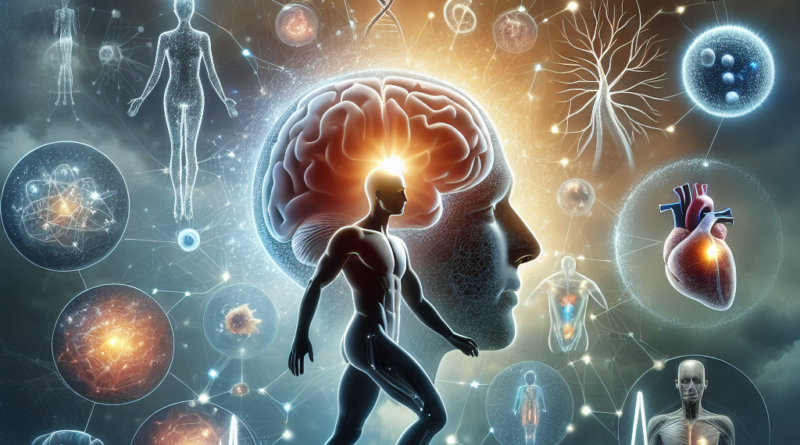What Are Some Scientific Studies That Support The Benefits Of A Strong Mind-body Connection?
Navigating the corridors of scientific discovery, the article “What Are Some Scientific Studies That Support The Benefits Of A Strong mind-body connection” unhinges the door to a realm often perceived with skepticism and intrigue. Bringing to light cutting-edge research and empirical perspectives, the article aims to unveil how a robust mind-body rapport significantly contributes to your mental, emotional, and physical well-being. It further outlines corresponding scientific studies, consolidating the undeniable role this potent connection plays in fostering overall health and prosperity.

Defining the Mind-Body Connection
The mind-body connection is an intricate and complex interaction between your mental, emotional and physical health. This concept suggests that our thoughts, feelings, beliefs, and attitudes can positively or negatively impact our biological functioning. On the flip side, what we do with our physical body, such as what we eat or how much we exercise, can affect our mental state of mind. It’s a mutually influential relationship with a profound effect on overall health and wellness.
Explaining the Mind-Body Concept
The mind-body concept centers on the fact that our mind and body aren’t separate entities but synergistic parts of a unified whole. A critical aspect of this connection is how we respond to stress. For instance, when you’re under stress, your body responds by increasing your heart rate and blood pressure while decreasing digestion rates. So essentially, what you think (mind) can significantly impact how your body functions.
Historical outlook of the Mind-Body Connection
The idea of the mind-body connection is not new. Historically, traditional Chinese and Indian Ayurvedic medicine have always treated the individual as a whole. Many other ancient civilizations also recognized the link between mental and physical health. However, in the late 19th and early 20th centuries, Western medicine began to focus more on the physical, often downplaying the impact of the mind. Only now, science is rediscovering the importance of a Strong Mind-Body Connection.
Understanding the importance of the Mind-Body Connection
Appreciating the importance of the mind-body connection is crucial in maintaining and improving both mental and physical health. A balanced connection helps us lead healthier and happier lives. It can enhance the immune system, curb negative effects of stress, and is believed to aid in the treatment of many chronic diseases.
The Neuroscience of Mind-Body Connection
Modern neuroscience has contributed significantly to our understanding of the mind-body connection. We now know the brain, nervous system, and mental factors have a critical role in physical health outcomes.
How the Brain and Body Communicate
The mind and body continuously communicate through the nervous system, endocrine system, and immune system. The brain sends signals to the body about thoughts and feelings, which the body responds to by adjusting functions like heart rate or respiration.
The Role of the Nervous System in Mind-Body Interactions
The nervous system is crucial in translating emotional states into physical reactions. The adrenal glands, part of the body’s stress response system, are directly wired to the brain and play a crucial role in generating physical symptoms due to emotional distress.
Influence of Brain Chemicals on Physical Health
The brain chemicals, known as neurotransmitters, regulate physical health. They communicate information throughout our brain and body and affect everything from our mood to muscle contractions. An imbalance of these neurotransmitters can disrupt the mind-body connection, leading to various physical and psychological symptoms.
Psychoneuroimmunology and Mind-Body Connection
Psychoneuroimmunology investigates how the mind influences the immune system. It plays a critical role in understanding the strength of the mind-body connection.
The Immune System’s Response to Mental and Emotional Status
When you’re under emotional stress, your body’s immune system function can decrease, making you more vulnerable to infections. Conversely, positive emotions can strengthen your immune functions.
Impact of Stress and Anxiety on Immune Functions
Chronic stress and anxiety not only affect your mental health but can compromise your immune system, making you more vulnerable to diseases and infections.
How Positive Emotions Boost Immunity
On the other hand, positive thoughts and emotions can strengthen your immune system. Research showed that individuals with a positive attitude produced greater antibodies in response to vaccinations, indicating a stronger immune response.

The Role of Mindfulness in Strengthening Mind-Body Connection
Mindfulness has been proven to be quite effective in enhancing the mind-body connection, bringing about several health benefits.
Benefits of Mindfulness Meditation
Mindfulness meditation involves focusing on your current experience and accepting it without judgment. Regular practice can reduce stress, improve mental clarity, enhance emotional intelligence, and decrease anxiety levels.
Scientific Studies Supporting Mindfulness for Mind-Body Health
Numerous scientific studies lend credibility to mindfulness practice for mind-body health. Mindfulness-based stress reduction (MBSR), for example, has shown to be beneficial in reducing pain and improving quality of life in chronic pain patients.
Mindfulness-Based Stress Reduction and its Effects on Physical Health
Mindfulness-Based Stress Reduction (MBSR) is a structured program that combines mindfulness meditation and yoga. MBSR has been associated with reduced stress and improved physical health in various clinical populations.
Impact of Physical Exercise on Mental Well-being
Exercise plays a powerful role in maintaining the mind-body interaction, mostly by acting as a natural antidepressant and promoting brain function.
The Effect of Regular Exercise on Mental Health
Exercise stimulates the production of endorphins, the body’s natural mood lifters. Regular physical activity can decrease symptoms of depression and anxiety and improve sleep.
Exercise as a Natural Antidepressant
Exercise promotes the production of neurotransmitters like serotonin and dopamine which are integral in regulating mood. Regular physical activity acts as a natural antidepressant.
How Physical Activity Boosts Brain Function
Physical activity increases blood flow to the brain, delivering oxygen and nutrients necessary for optimal brain function. Exercise also promotes the growth of new brain cells, improving cognitive function and memory.
The Influence of a Balanced Diet on Mental Health
It’s no surprise that what we put into our bodies affects our mental health.
Nutrition and its Impact on Brain Health
A balanced diet is key to nourishing the brain and protecting it from oxidative stress. The brain consumes a vast amount of the body’s energy, and this directly correlated to what we eat.
How a Healthy Diet Contributes to Emotional Well-being
A healthy diet can enhance your mood and emotional well-being. Foods rich in B vitamins, for example, can help reduce feelings of anxiety and stress.
Scientific Studies Linking Dietary Habits and Mental Health
Multiple studies have found links between diet and mental health. Research shows that a high-quality diet rich in fruits, vegetables, lean protein, and whole grains is associated with better mental health outcomes.
The Power of Yoga and Tai Chi on Mind-Body Health
Practices like Yoga and Tai Chi are known to improve the mind-body connection.
Yoga and Its Influence on Mental and Physical Health
Yoga not only improves physical flexibility but can also help manage stress, anxiety, and depression. It combines physical postures, breathing exercises, meditation, and a distinct philosophy in a full mind-body practice.
Tai Chi as a Mind-Body Exercise
Tai Chi emphasizes mindful, purposeful movement and breath control, promoting harmony between mind and body. It can improve balance, enhance mental clarity, and decrease stress levels.
Scientific Studies on Yoga and Tai Chi Benefits
Several scientific studies have credited Yoga and Tai Chi with numerous mental and physical health benefits, including reduced stress levels, improved cognitive function, and better cardiovascular health.
Sleep as a Fundamental Aspect of Mind-Body Health
Good quality sleep is essential in maintaining a healthy mind-body connection.
Link Between Sleep Quality and Mental Health
Sleep deficiencies can not only impair cognition but also contribute to mental health disorders such as anxiety and depression.
Impact of Sleep Disorders on Physical Health
Sleep disorders can lead to a weakened immune system, increased risk of chronic diseases like diabetes and heart disease, and can negatively impact life quality.
How Proper Sleep Can Boost Mind-Body Connection
Achieving sufficient high-quality sleep can enhance mental and physical health, improve productivity, and reduce the risk of many health complications.
The Potential of Music Therapy in Strengthening Mind-Body Connection
Music therapy influences the mind-body connection by influencing our emotions and delivering physical benefits.
Music Therapy and its Influence on Emotions
Many people turn to music for comfort or contemplation because music can evoke and manage emotions. It makes it an effective mind-body intervention.
Impact of Music on Physical Health
Listening to the music we love can help reduce stress, lower blood pressure, reduce pain perception, and even improve immune system function.
Scientific Studies Supporting Music Therapy
Several studies reveal the power of music therapy in managing mental health conditions like anxiety and depression and enhancing physical wellbeing.
Conclusion: The Importance of a Strong Mind-Body Connection for Overall Health
The mind-body connection is an imperative aspect of overall health and wellness. It’s clear that our mental state can affect our physical health, and conversely, our physical health can impact our mental wellbeing.
Summary of Key Findings
We’ve explored how mind-body science emphasizes the critical role of factors like stress, diet, physical activity, sleep, and mindfulness in influencing health outcomes.
Recommendations for Strengthening the Mind-Body Connection
It is crucial to maintain a healthy lifestyle, prioritize mental health, engage in regular physical activity, ensure a nutritious diet, and get quality sleep. Practices like mindfulness, yoga, tai chi, and music therapy can assist in strengthening the mind-body connection.
Future Perspectives on Mind-Body Research
While the groundwork has been laid for Understanding the mind-body connection, ongoing research will help us dig deeper into how emotional, mental, social, and behavioral factors can directly impact our health. By focusing on this holistic approach, we can move towards an integrated model of health care that values mind-body harmony.

